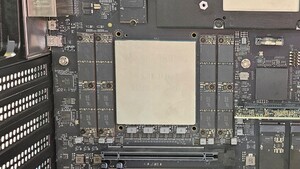Also, to address the issue of ECC on AMD's Ryzen and Threadripper platforms. ECC lies in this region of 'it kind of works' but isn't validated. There is what's called 'unofficial support', which is different to 'official qualification'. Technically, none of the Ryzen and Threadripper CPUs are 'officially qualified' for ECC, however most of them (if not all) will exhibit unofficial support. This means that it might work, but AMD won't give you assistance for it. There are two caveats to this:
First, it requires motherboard support. Some vendors are designing their boards with ECC support, and some will formally qualify supporting ECC. Note that even if the vendor lists official support, you are in 'unofficial support' from AMD's perspective.
Secondly, there's the 'is it working' question. Sure you can have a CPU that unofficially supports ECC, and ECC memory in a motherboard that 'officially supports' ECC, and there are tools in the OS to determine that all the parts of the chain support it. But the next question is if it actually works - some software only checks the 'does it support ECC' flag, rather than actually testing for it. There are reports of users who, by most measures, have everything in the chain sorted and reported as working, but none of it is actually enabled. This could be down to specific drivers, or a BIOS issue. Some software might say 'ECC found, running, but not enabled', or words to that effect. Ultimately you need the ability to support ECC tracking, which often isn't supported natively on consumer grade motherboards. On server grade motherboards, it is.
It's a minefield, and your mileage may vary. Our recommendation here is that if you absolutely need an AMD CPU with ECC as a mission critical part of your build, go for EPYC.



